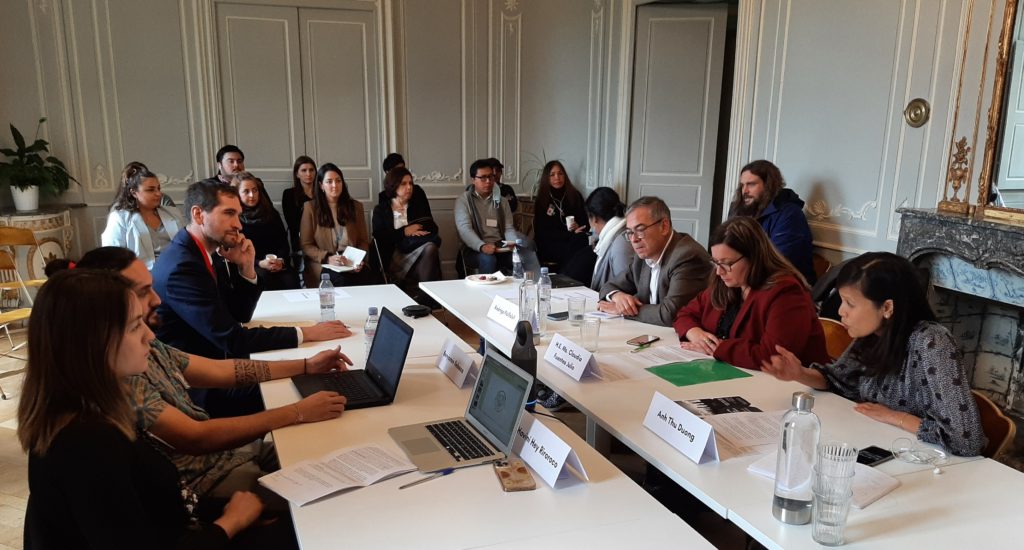The 11th annual UN Forum on Business and Human Rights focused on efforts at securing accountability and access to remedy for business-related human rights abuse, in order to accelerate the implementation of the United Nations Guiding Principles on business and human rights (UNGPs). The UNGPs provide a global framework for States and businesses to prevent and address the impacts of business-related activities on human rights.
On 29 November 2022, the Geneva Cities Hub (GCH), in collaboration with the Mission of Chile to the UN Office in Geneva, organized the side event “Human rights of the Rapa Nui people during the Covid-19 pandemic” to share the experiences of the municipality of Easter Island during the pandemic period and share good practices related to cooperation with businesses to protect and fulfil human rights on the island. Ambassador Claudia Fuentes Julio, Permanent Representative of Chile to the United Nations Office in Geneva led the discussion. The various sanitary restrictions and disruptions caused a virtual isolation of the island for three years. This was particularly striking in the areas of transportation, trade, telecommunications, water and sanitation, and energy production, among other basic needs.
This side event provided insight into practices in Chile, in particular regarding the Rapa Nui people, to facilitate the link between companies and native peoples, the role of public policies to establish frameworks for interaction, and the challenges faced by the local authorities. It discussed the role of the local government in establishing operational links with the companies, including LATAM, that helped in the provision of fundamental services necessary to the fulfillment of human rights.
GCH Co-Director Anh Thu Duong underlined that our mission is to better connect local and regional governments worldwide to the multilateral work undertaken here in Geneva. Thus, welcoming the municipality of Rapa Nui and listening to how they work with local businesses and the central government to address a global challenge such as the pandemic, is right at the heart of the Geneva Cities Hub’s mission. Local and Regional Governments (LRGs) have an important role to play. Indeed, they are the ones who know best about the needs and aspiration of the local communities, they know about the local context, including which business enterprises are active in the area, and LRGs are the ones having the capacity to work in a multi-sectoral manner, including with the private sector.
The event confirmed that it is of particular importance to hear the voice of LRGs in the international fora, including business & human rights, and it was especially enriching to have representatives of the municipality, the central government and the business sector around the table. Mr. Benjamin Llabaca and Ms. Havini Hey Riroroco of the Municipality of Rapa Nui explained that the Covid-19 pandemic and the isolation had huge health, social and economic consequences. Health services, consumer good supplies and waste management were disrupted. Economic activities – especially tourism – were closed down. In this very particular situation – due to the specificities of the economic fabric on the island – business actors were the only ones being able to provide basic services. LATAM for example stopped its passenger flights but kept air cargo services that brought 20 million doses of vaccine to the island and 338 tons out of it. As David Harry put it, the company rediscovered its vocation to serve the people of Rapa Nui in the pure sense of the word. Rodrigo Paillalef, elected member of the UN Permanent Forum for Indigenous Peoples emphasized the responsibility of companies in the protection, promotion and fulfillment of human rights.
Interventions from the audience shed light on the human rights challenges faced by the local communities in Nicaragua, Guam and Mexico. They shared important lessons learnt and concrete positive developments regarding new regulations regarding the obligation of business actors to assist local communities in case of a crisis situation.

